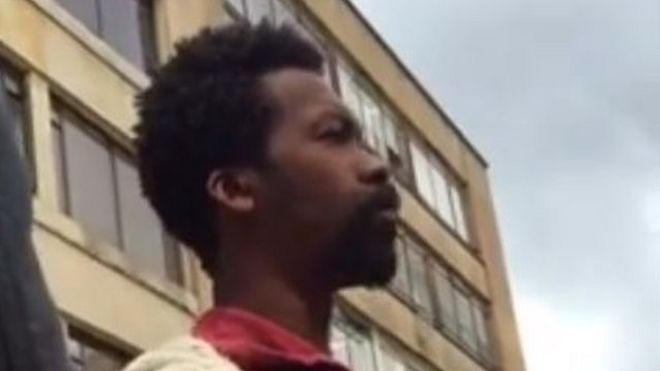From Cuba with Love: Free Medical School Scholarships for Black and Latino Students
image: http://www.eurweb.com/wp-content/uploads/2015/09/dianeb21.jpg

Isaiah Blackmon along with students and mentoring doctor, during Charles Drew Medical University Future Black Doctors, Ceremony in Los Angeles California.
*VBETT / Vallejo Black Empowerment Think Tank, is partnering with IFCO / Pastors for Peace of New York City and Cuba’s Latin American School of Medicine, to offer Vallejo, California students an opportunity of a lifetime: A free, full ride, six year medical school education including room and board.
Cuba has opened its doors and rolled out the welcome mat to Black and Latino Americans in an effort to increase cultural diversity within medical arenas by creating more doctors, to serve. With the only condition upon graduation being to return to the United States and aid underprivileged areas within the city of Vallejo and the Bay Area.
“A medical education in the U.S. can cost more than $200,000, Cuba is interested in providing medical training to qualified students who are committed to working in medically underserved communities, but would not be able to do so if they graduated with hundreds of thousands of dollars of debt.” – President Fidel Castro, during the 2000, Millennium Summit, in New York.
The pioneering program saw its first United States, students enter the Latin American School of Medicine in 2001 and now students continue to be admitted every August.
image: http://www.eurweb.com/wp-content/uploads/2015/09/cuba.jpg

Recent Latin American School of Medicine MD Degree Graduates. By spring of 2010, 122 United States students have already graduated.
By the spring of 2010, 122 US students from 29 states plus Puerto Rico and Washington DC are enrolled, and 33 American Students have already graduated with MD degrees.
This unique concept is an collaboration between Cuban President Fidel Castro, the United States Congressional Black Caucus, who exposed the limited amount of doctors of color available in the inner cities and economically depressed areas in America and the IFCO who’s excellent working relationship and 40 year history of creative community organizing for social, racial, and economic justice in communities across the country – was in a unique position to assume responsibility for administrating the scholarship program in America.
“Thanks VBETT, for your interest it looks like your doing good work and it would be great to work with you.” – Dr. Melissa Barber, Program Coordinator, Latin American School of Medicine Scholarship
Vallejo Black Empowerment Think Tank, a nonprofit community based organization of media, entrepreneurs, stake holders, and faith based ministries. Who’s mission is developing exceptional future citizens, by uplifting, guiding and exposing culturally diverse youth to future possibilities and opportunities through mentoring, internships, apprentice and scholarship programs.
“The Latin American School of Medicine offers a life changing opportunity possibly, for some of our kids here in Vallejo. VBETT, will facilitate locally to assist in getting the word out, identifying potential students as early as middle school to start the mentoring grooming process, and assisting with any questions that Vallejo parents, educators or students may have. What a once in a lifetime moment, I know we have many future doctors here!” proclaims, Diane Blackmon Bailey, VBETT Founder.
FOR MORE INFORMATION.
Email: blackthinktank707@gmail.com
Visit sites VBETT http://www.thinktank707.com
IFCO http://www.ifconews.org
Read more at From Cuba with Love: Free Medical School Scholarships for Black and Latino Students
image: http://www.eurweb.com/wp-content/uploads/2015/09/dianeb21.jpg

Isaiah Blackmon along with students and mentoring doctor, during Charles Drew Medical University Future Black Doctors, Ceremony in Los Angeles California.
*VBETT / Vallejo Black Empowerment Think Tank, is partnering with IFCO / Pastors for Peace of New York City and Cuba’s Latin American School of Medicine, to offer Vallejo, California students an opportunity of a lifetime: A free, full ride, six year medical school education including room and board.
Cuba has opened its doors and rolled out the welcome mat to Black and Latino Americans in an effort to increase cultural diversity within medical arenas by creating more doctors, to serve. With the only condition upon graduation being to return to the United States and aid underprivileged areas within the city of Vallejo and the Bay Area.
“A medical education in the U.S. can cost more than $200,000, Cuba is interested in providing medical training to qualified students who are committed to working in medically underserved communities, but would not be able to do so if they graduated with hundreds of thousands of dollars of debt.” – President Fidel Castro, during the 2000, Millennium Summit, in New York.
The pioneering program saw its first United States, students enter the Latin American School of Medicine in 2001 and now students continue to be admitted every August.
image: http://www.eurweb.com/wp-content/uploads/2015/09/cuba.jpg

Recent Latin American School of Medicine MD Degree Graduates. By spring of 2010, 122 United States students have already graduated.
By the spring of 2010, 122 US students from 29 states plus Puerto Rico and Washington DC are enrolled, and 33 American Students have already graduated with MD degrees.
This unique concept is an collaboration between Cuban President Fidel Castro, the United States Congressional Black Caucus, who exposed the limited amount of doctors of color available in the inner cities and economically depressed areas in America and the IFCO who’s excellent working relationship and 40 year history of creative community organizing for social, racial, and economic justice in communities across the country – was in a unique position to assume responsibility for administrating the scholarship program in America.
“Thanks VBETT, for your interest it looks like your doing good work and it would be great to work with you.” – Dr. Melissa Barber, Program Coordinator, Latin American School of Medicine Scholarship
Vallejo Black Empowerment Think Tank, a nonprofit community based organization of media, entrepreneurs, stake holders, and faith based ministries. Who’s mission is developing exceptional future citizens, by uplifting, guiding and exposing culturally diverse youth to future possibilities and opportunities through mentoring, internships, apprentice and scholarship programs.
“The Latin American School of Medicine offers a life changing opportunity possibly, for some of our kids here in Vallejo. VBETT, will facilitate locally to assist in getting the word out, identifying potential students as early as middle school to start the mentoring grooming process, and assisting with any questions that Vallejo parents, educators or students may have. What a once in a lifetime moment, I know we have many future doctors here!” proclaims, Diane Blackmon Bailey, VBETT Founder.
FOR MORE INFORMATION.
Email: blackthinktank707@gmail.com
Visit sites VBETT http://www.thinktank707.com
IFCO http://www.ifconews.org
Read more at From Cuba with Love: Free Medical School Scholarships for Black and Latino Students























